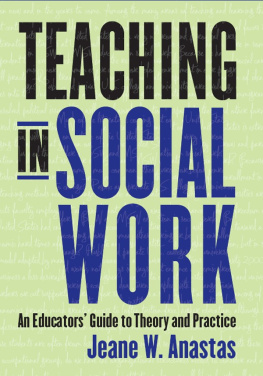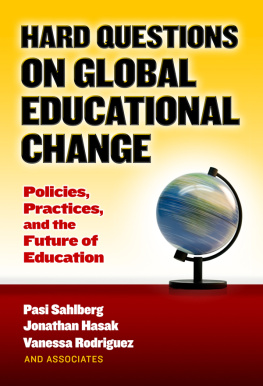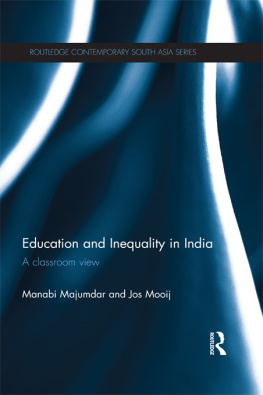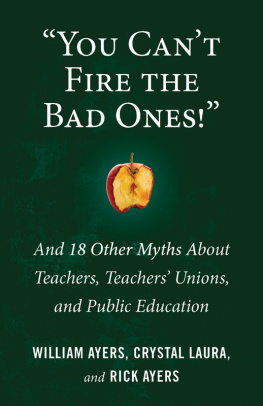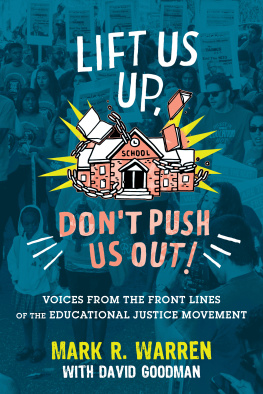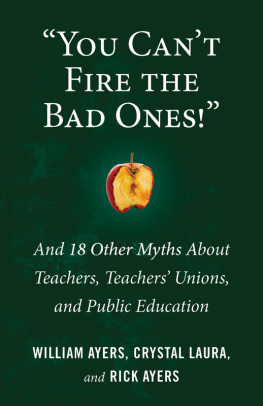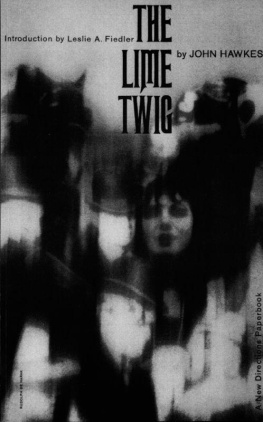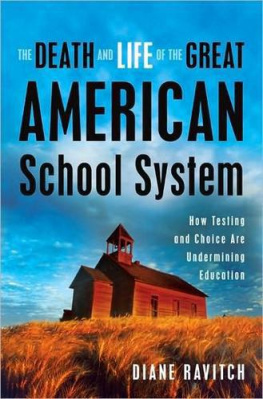
This edition is published by Papamoa Press www.pp-publishing.com
To join our mailing list for new titles or for issues with our books papamoapress@gmail.com
Or on Facebook
Text originally published in 1957 under the same title.
Papamoa Press 2018, all rights reserved. No part of this publication may be reproduced, stored in a retrieval system or transmitted by any means, electrical, mechanical or otherwise without the written permission of the copyright holder.
Publishers Note
Although in most cases we have retained the Authors original spelling and grammar to authentically reproduce the work of the Author and the original intent of such material, some additional notes and clarifications have been added for the modern readers benefit.
We have also made every effort to include all maps and illustrations of the original edition the limitations of formatting do not allow of including larger maps, we will upload as many of these maps as possible.
BENDING THE TWIG
THE REVOLUTION IN EDUCATION AND ITS EFFECT ON OUR CHILDREN
By
AUGUSTIN G. RUDD
Chairman, Educational Committee, National Society, Sons of the American Revolution
Tis education forms the common mind Just as the twig is bent the trees inclined
Alexander Pope
Prove all things; hold fast that which is good
(1 Thess. 5:21)
TABLE OF CONTENTS
Contents
TABLE OF CONTENTS
DEDICATION
TO THE MANY VALIANT EDUCATORS
who have fought vigorously to preserve in our schools and colleges the fundamentals of sound education and the ideals and principles on which our Republic was founded. Conceived by brilliant men, this priceless heritage has bestowed upon the people of all nations who have come to our shores the gifts of freedom and opportunity, and the greatest spiritual and material blessings in the history of mankind.
FOREWORD
OUR PUBLIC SCHOOL SYSTEM has been one of our most respected institutions for generations. Its integrity, efficiency and steadfast adherence to the task of imparting basic education and sound training in the development of worthy American citizens have caused it to be regarded as a great bulwark of our liberties. It was disturbing to learn, therefore, as I did in the spring of 1938, that some of its most important concepts and objectives had been uprooted. So deep-seated were these changes that they constituted a veritable revolution in the educative process. The results at hand were definitely alarming.
In a study of the history of our public schools, the author has been impressed by the masterful job they have done, be they large or small, in preparing pupils for useful and successful adult lives. I am equally convinced that our Republic cannot long survive the time when a majority of our youth reaches maturity without an adequate appreciation of its great American heritage. During the past eighteen years my interest in this subject has continued unabated. I have heard from thousands of citizens who have poured out their misgivings. Most of them have pleaded for help in arresting a condition in their schools which they knew to be wrong. In fact, these distressed but unorganized parents in all parts of our country are really the inspiration of this book.
Bending the Twig makes no pretense of being a treatise on education. One need not be a mechanical engineer to judge the performance of his automobile. It is judged by the practical results. By the same reasoning, a parent does not have to be a professional educator to evaluate the results of the public education of his children. The primary responsibility for a childs education rests with the parent. This right cannot be usurped by the educator or by the state.
Parents are puzzled and confused today. The main purpose of this book, therefore, is to provide answers to these timely questions: (1) What is the New Education? (2) How has it worked? (3) What should we expect of our public schools? These pages embody the research, the facts and the arguments not readily available to our people. I have drawn freely on the studies and background documentation of many authorities, of both the past and the present, whose statements contribute to an understanding of the issues. References are made throughout the text to their books and public pronouncements, and this assistance is gratefully acknowledged.
A confusing issue-academic freedom-has caused bitter controversy in recent years. Because of its importance and relationship to the whole problem, it is discussed at length in Chapter IX.
Many patriotic groups and individuals have aided in this work, particularly the Sons of the American Revolution. The unfailing encouragement and assistance of Mr. Gardner Osborn, Secretary of the New York Chapter, Empire State Society, and Mrs. Osborn have aided materially in the publication of this book.
The author has given all rights, title and royalties in Bending the Twig to the New York Chapter, Sons of the American Revolution, under whose auspices it is being published.
It is hoped that this volume will be practically useful to all public-spirited citizens, and that it will furnish the basis of an intelligent review and appraisal of the quality of the New Education. Also, that it will provide a reasonable estimate of what we have a right to expect from our public schools.
AUGUSTIN G. RUDD
PART I
CHAPTER I What Is Happening in Our Public Schools?
THIS IS A BOOK which grew out of the anguished concern of a typical American parent over the disturbing trends of American contemporary public school education. Because millions of other parents are sharing that concern, there is a widespread need for a review of the situation which will supply answers to some of the questions in parents minds. What is wrong in our public schools?
Some eighteen years ago, in a suburban community, the author of this book was amazed to learn that our children were not being taught many of the fundamentals of knowledge which had been the backbone of public school education for generations. When he looked further, he discovered that the traditional school courses which had shaped the minds of generations of our citizens had been drastically altered or omitted. For instance, history, geography and civics had disappeared as separate subjects. In their place was a new and confusing omnibus course styled social science , which was to become the core of the whole program. The more the author examined the texts and the day-to-day lessons of this course, the more he realized that a whole set of new concepts and doctrines had been bootlegged into the school curriculum. Some of these concepts contradicted and condemned ideas which were held by the overwhelming majority of the American people. Even the main purpose of the public school had been changed. Obviously, something was wrong. Who had done this to the tax-supported public school curriculum? He began to make inquiries.
The answers he received were even more disturbing. His local high school, he learned, had built its social science instruction around textbooks by Dr. Harold Rugg, of Teachers College, Columbia University, a leading New Educationist, who had loaded them with arguments supporting statism, and upholding collectivist doctrines as superior to sound American principles. These statements constituted a severe indictment of our way of life. Now, although no one questioned the right of Rugg as a private citizen to write and publish debatable books and ones at such variance with our accepted beliefs, the problem here was something different. This slanted, partisan course was being used by the public schools. It was presenting its off-center economic and political theories to plastic minds as social science. Somebody had approved these texts for use by our children. Further inquiries revealed that these books had been approved by the New York State Board of Education. Furthermore, there were many others of like nature on the approved list. Obviously, the problem was not local, it was general. It existed in public schools throughout the state and the nation. What was going on in American education, anyhow?


